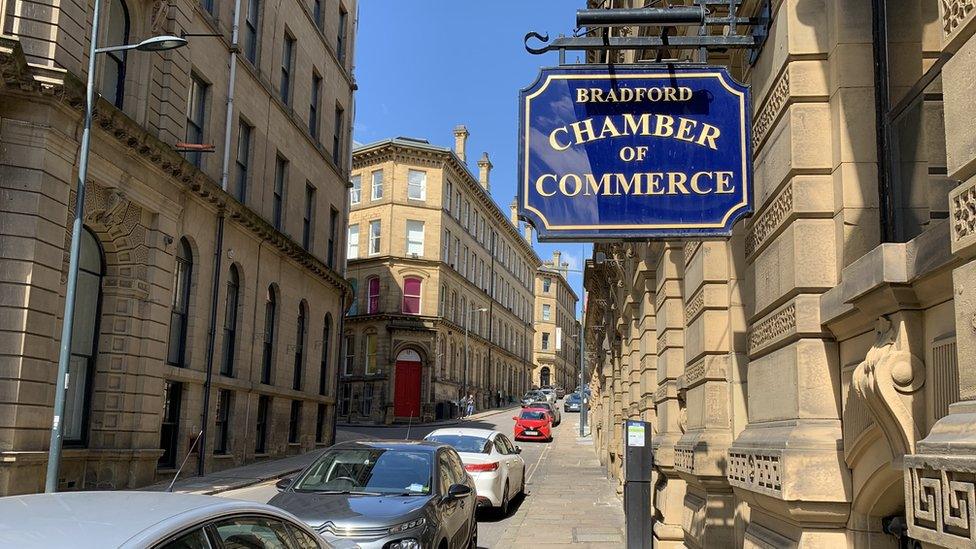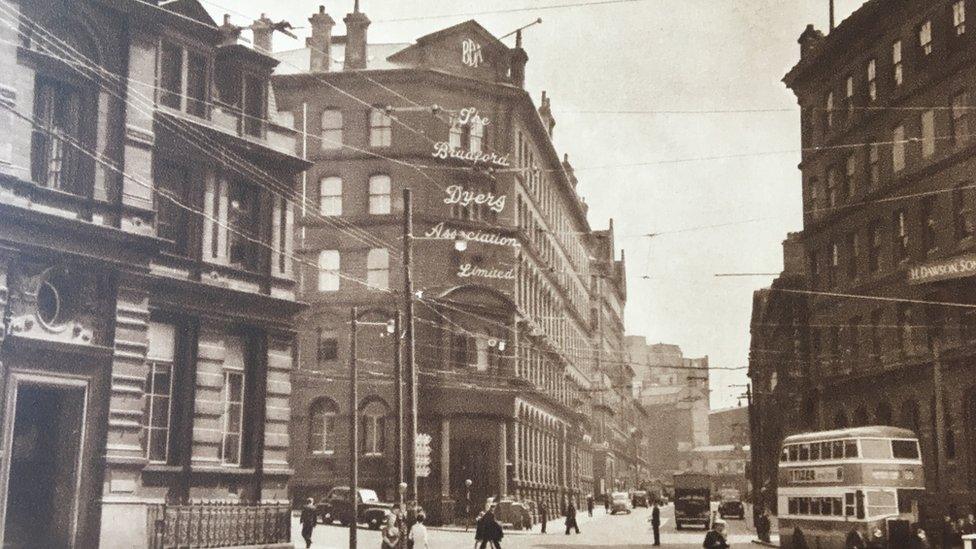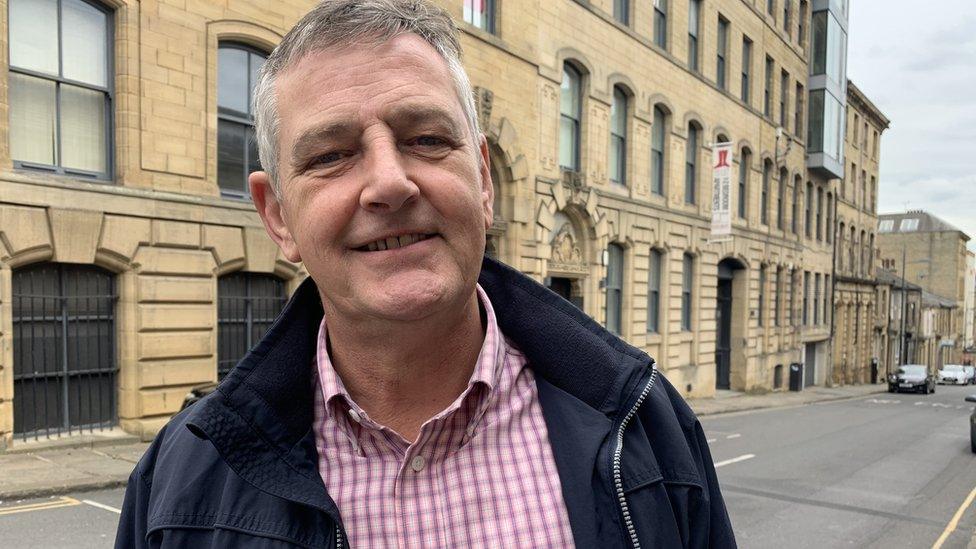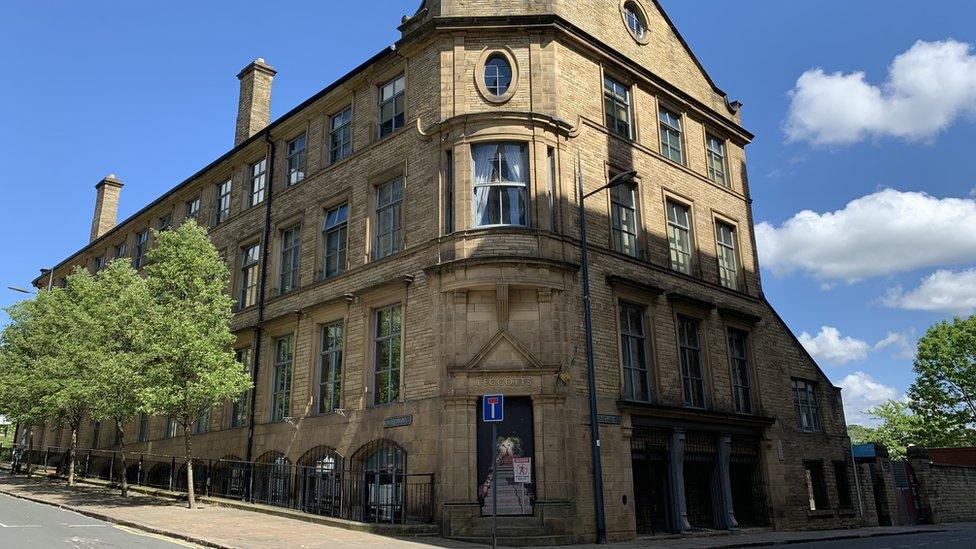Why is there a Little Germany in Bradford?
- Published

German businessmen founded the Bradford Chamber of Commerce.
Just outside Bradford city centre, there are dozens of unique buildings in an area called Little Germany.
As part of the BBC's We Are Bradford project, people asked us about the origins of these "beautiful" buildings.
They were mainly offices and warehouses built by German wool merchants who moved to Bradford in the 1800s.
Richard Farrar, who recently visited the area on a day trip, said: "In industrial parts of West Yorkshire, the centres have a lot of history to offer.
Latest news and updates from Yorkshire.
"You forget that these buildings have got a history behind them.
"They're often hidden round corners you might not expect and if you just take a little time and effort to have a stroll round, it's surprising what you discover."

Just outside Bradford city centre, there are dozens of unique buildings.
These structures were built after Bradford's economy experienced a huge boom in the 1800s as the wool trade grew rapidly in the city.
Many German merchants, who were attracted by the business potential in the area, moved to Bradford as a result.
Elizabeth Llabres, curator of Social History at Bradford Museums, said: "The German businessmen were generally from a wealthier background and had a powerful influence on trade and the development of the town.
"They were not necessarily at the manufacturing end, but at the trade end where a lot of the money is being made.
"The merchants helped streamline and simplify the business of selling woollen goods and helped widen Bradford's markets."

Richard Farrar said: "You forget that these buildings have got a history behind them."
Well-known German businessmen, such as Sir Jacob Behrens, created the Bradford Chamber of Commerce which promoted Bradford's goods worldwide.
As the wool business thrived in Bradford, a lot of the businessmen built warehouses in the area that would become Little Germany.
Munro Price, Professor of International History at Bradford University, said: "Without the German influence, Bradford wouldn't have been so affluent. The German merchants saw a huge opportunity and made it into a global city."
But the German influence in Bradford wasn't limited to just the wool industry, the merchants had a huge cultural impact too through acts of philanthropy.

The German influence in Bradford was more than just in the wool industry.
Sir Jacob Behrens founded Bradford's Eye and Ear Hospital and German businessmen also financed other projects in Bradford, such as the construction of St George's Hall.
Ms Llabres said: "Germans living in Bradford developed a lively middle and upper class community and established cultural clubs and societies."
These included supporting the Bradford Festival Choral Society and forming links with the Halle Orchestra, which held an annual season of concerts in Bradford.
Prof Price said: "In terms of culture, the Bradford Germans had a big impact.
"They were extremely important as they were the key people in the city."
This article was created as part of We Are Bradford - a BBC project with the people of the city to tell the stories which matter to them.
Get in touch
Have you got a story from Bradford or a question about the city you'd like us to answer? You can submit suggestions using the tool below.
If you are reading this page on the BBC News app, you will need to visit the mobile version of the BBC website to submit your question on this topic.